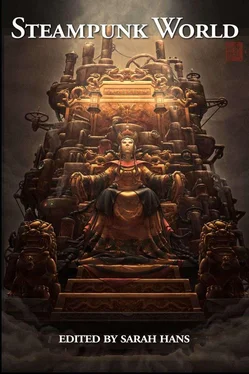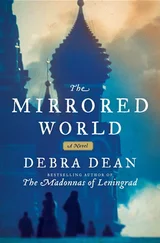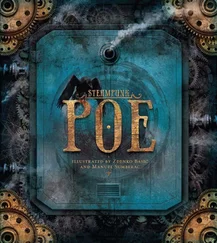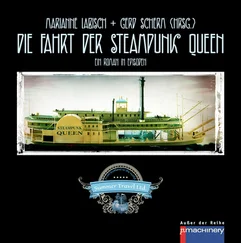“French.”
The scout vomited over the floor.
Kenton ordered the men to revive him, but I saw the fear on his face, though at the time I did not know what “French” meant. He also doubled the guard and conferred with other white men. I remained at the periphery and kept quiet and still. Experience had taught me that they often forgot about my presence when I remained silent.
“Let me tell you about the French,” said one of the enlisted men. “They’re very dirty, you savvy? Never do they wash. Eat frogs, don’t they? Kill their royals with a goolly-tine.”
“What’s this goo-lly-tine?” I asked.
The man made a chopping motion across his own throat, then guffawed. I could not imagine the spilling of royal blood and I thought to myself what curious creatures these French must be.
At that moment Kenton strode out of the Commanding Officer’s office, red faced in that way white men get when they are drunk or angry. His gait was too assured and stable for inebriation, and besides, I had never seen Kenton imbibe. He was sober in all manner of things. He was, as he passed me, muttering to himself.
“Make ready. Make ready. All the fornicating heathen gods! Make ready, he says.” Kenton stopped, swivelled and stabbed me in the chest with his index finger. “You. Get me the Black. Right now. No, wait. Clean him up and give him some water and corn meal. Then bring him to the office.”
Budo sat cross-legged on the ground and ate with his hands, slowly, deliberately, concentrating on each morsel. I tried to speak but he held up his hand. He was one who favoured full attention on any task at hand. I therefore concentrated on his features while waiting. He was darker than most, lanky, with sunken cheekbones. His hair had grown out in captivity, but it was not tangled. He had a Widow’s Peak but large eyes dominated his face. His muscles were flat, like a blanket on his bones. He wore a tattered, filthy loin cloth of indeterminate colour and powerful stench.
I had grown soft in the house of the oppressors and I am ashamed to report that I could not stand the sight of him, used as I was to more genteel surroundings.
He drank water in the same way he ate and I grew impatient. From Budo’s cell I could hear the steady hammer of the brothers securing the fortifications and the regular footfalls indicating the drills of soldiers preparing themselves. The predominant smell in the cell came from the outhouse. This was by design.
When Budo looked my way I felt more naked than he. “Tell me why they want me.”
I did.
He stood. “Take me to Kenton.”
“Change your clothes,” I said, offering him some cotton shorts, but he would not take them.
“There is no time for that.”
At this point I should probably tell you why the English wanted Olufemi Budo when they should have been counting their Enfield rifles and begging their gods for a functioning Maxim.
I have mentioned that Budo fell from the sky. Nobody saw him fall exactly, but some fishermen discovered him in a palm tree one morning, injured, unconscious and wearing a peculiar contraption made of leather and strips of rubber. It was a system of belts and bladders that none of the villagers understood enough to save. When he regained consciousness the first thing Budo asked for was his harness, but nobody understood what he meant. His Yoruba was correct, if stilted and precise. He suffered from malaria and had several fractures which the bone-setter took care of. They also fed him agbo iba until his fever broke.
Our village was a sleepy place about a hundred miles from the west bank of the Niger. We used to be an occasional reservoir for the transatlantic slave trade before it was abolished. Then we became a reservoir for enforced labour without pay, which I could not distinguish from slavery, but the British priest assured me this was the better condition. Honest labour, he called it. They made us build infrastructure—roads, houses, railroads—designed solely for the purpose of taking goods from the interior to the coast where ships waited to sail for Liverpool and Portsmouth.
Before Budo landed on us our weapons were cutlasses, spears, amulets, charms, bows and arrows and leather vests, none of which worked against English steel or gunpowder. The mounted raiders from the Oyo Empire defeated us with ease when they needed slaves.
There were no raids while he recovered. He hobbled around on a thick stick staring at everything from the mud used for mortar to the umbilici of newborn babies. He looked at millet harvests and rubber trees. He sometimes asked if anyone had seen a flying orchid, but we did not understand him.
From the outset he was an object of curiosity in the village. Children followed him about making fun of his shamble or his strange pronunciation of Yoruba words. He garnered a lot of attention from the young ladies as well. It is not hard to intuit why. He was not one of us and hence had mystery. He did not speak much, and one could project celestial intent on his most mundane action. He had preternatural interest in everyone and everything around him. I am unsure if he deflowered any of the admirers, but the smiles and significant looks were suggestive.
He stayed with the medicine man for eight weeks, until his bones knitted. The village chief summoned him after that, and he came into the royal hall flanked by two rod-bearers. I was a member of court at the time, and Budo was asked to explain himself.
“Please forgive me for not greeting you in the proper manner, kabiyesi . My joints are still stiff from my accident.”
“Keep your apologies to yourself,” I said. “Just tell us where you are from.”
“Of course.” Budo kept his eyes on the chief. “ Kabiyesi , I do not remember much since waking up. My injuries have robbed me of much of my past. But I do remember the path to many technologies and special engines. If you will permit me I can direct them towards the betterment of your village while I try to work out precisely what happened to me.”
The chief whispered to his praise-singer. The speaker, the abobajiroro, said, “Can you fly?”
“No, kabiyesi .”
The chief whispered again. The speaker said, “Your Lord and Earthly representative of the orisha asks what you mean by ‘betterment’.”
“I mean the discouragement of the whites and their assistants, the ones who raid your village.”
The chief whispered. The speaker said, “Budo will be allowed to establish these technologies. He will be assisted by the most gracious Lord’s own daughter, Omolola.”
This alarmed me. I had hoped to be placed in charge of monitoring the stranger to increase my standing, but the main problem was that Omolola was unpredictable and difficult to trust. When she was sixteen her father sent her to the court of the Alaafin of Oyo as an ambassador to negotiate the amount of tribute expected. The defiant slaver Francisco Marinementus was at court, present for her plea, and became infatuated. He wished to add her to his harem which was rumoured to be at least one hundred strong. She threatened to geld him in perfect Portuguese and dissuaded the old man, much to the amusement of the Alaafin and his advisers. Omolola was married to a nobleman and had six children, however her husband was weak and ineffectual. Her prodigious sexual appetite was well reported, as was her spouse’s inability to satisfy, and yet all her children bore a striking resemblance to him. This was a puzzlement to me until I overheard her speaking to one of her husband’s wives.
“I only take lovers when I am bleeding or pregnant,” Omolola said. “If the train is full there can be no new passengers.”
She took to her new duties with great dedication, never leaving the stranger’s side, and I spied on them. Budo performed arcane experiments with rubber and iron and malachite and other minerals while Omolola watched. He had close to a hundred bags of coal. For reasons I could not understand Omolola instructed the young men to gouge out holes in the trees, including the Iroko tree in the square.
Читать дальше












